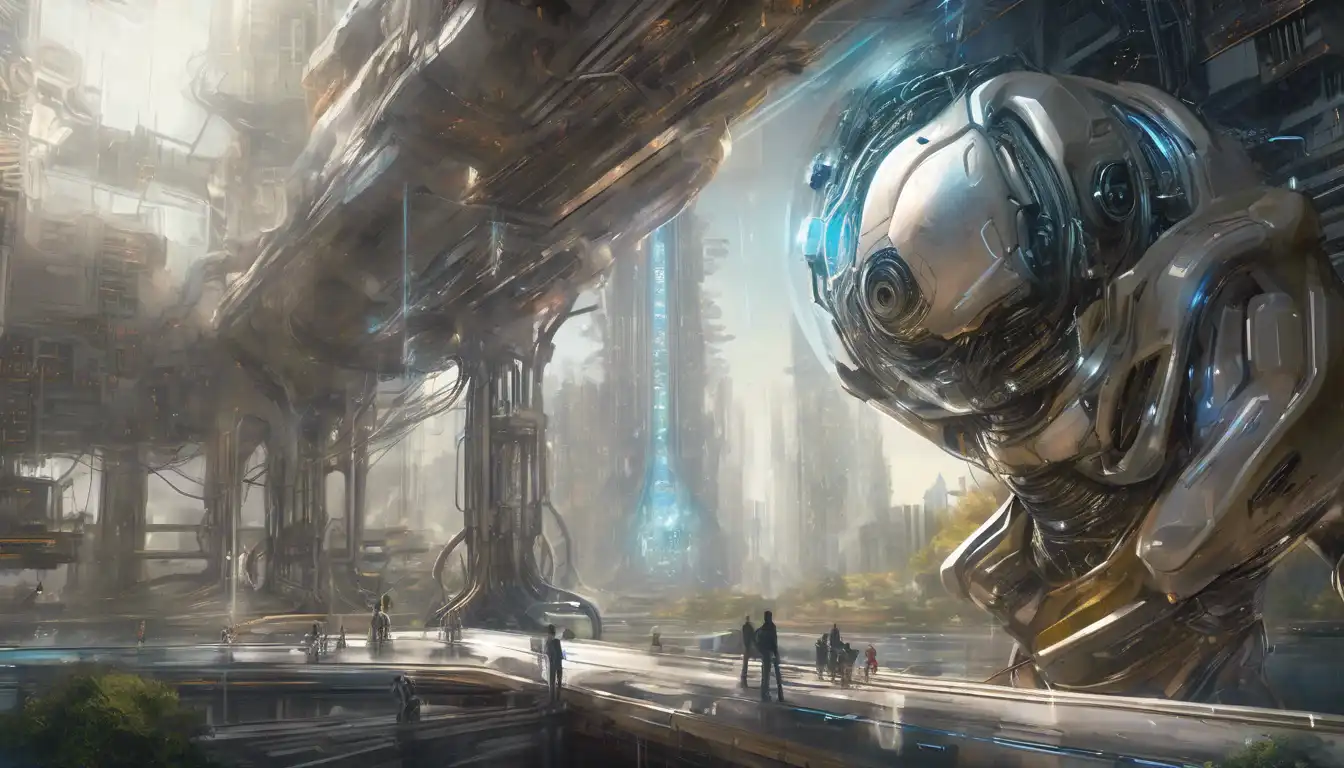The Dawn of a New Age in Artificial Intelligence
Artificial Intelligence (AI) is no longer a futuristic concept but a present reality that's reshaping industries, enhancing human capabilities, and redefining the boundaries of what machines can do. Today, we stand on the brink of a technological revolution that promises to transform every aspect of our lives. This article delves into the current state of AI, its potential future developments, and how it's already making an impact across various sectors.
The Current State of AI
AI has evolved from simple machine learning algorithms to complex systems capable of performing tasks that require human-like understanding and reasoning. From machine learning to natural language processing, AI technologies are becoming increasingly sophisticated. Companies are leveraging AI to improve customer experiences, optimize operations, and create innovative products and services.
Future Prospects of AI
The future of AI holds limitless possibilities. With advancements in deep learning and neural networks, AI systems are expected to achieve greater autonomy, creativity, and emotional intelligence. This could lead to breakthroughs in areas such as healthcare, where AI could predict diseases before symptoms appear, or in environmental science, where it could model climate change scenarios with unprecedented accuracy.
AI's Impact Across Industries
AI's influence spans across multiple industries, revolutionizing traditional practices and introducing new paradigms. In healthcare, AI-powered diagnostics and personalized medicine are improving patient outcomes. In finance, AI is enhancing fraud detection and automating trading. The automotive industry is witnessing the rise of self-driving cars, thanks to AI. These examples barely scratch the surface of AI's potential to innovate and transform.
Challenges and Ethical Considerations
Despite its benefits, the rapid advancement of AI raises important ethical and societal challenges. Issues such as data privacy, job displacement, and algorithmic bias must be addressed to ensure that AI develops in a way that benefits all of humanity. Engaging in open dialogues and establishing robust regulatory frameworks are crucial steps in navigating these challenges.
Preparing for an AI-Driven Future
As AI continues to evolve, individuals and organizations must adapt to stay relevant. This involves acquiring new skills, embracing lifelong learning, and fostering a culture of innovation. By understanding AI's capabilities and limitations, we can harness its power to create a better future for everyone.
The journey of AI is just beginning, and its trajectory is filled with both opportunities and challenges. By exploring the future of artificial intelligence today, we can prepare ourselves for the changes it will bring and ensure that we're ready to embrace the next era of technological advancement.
